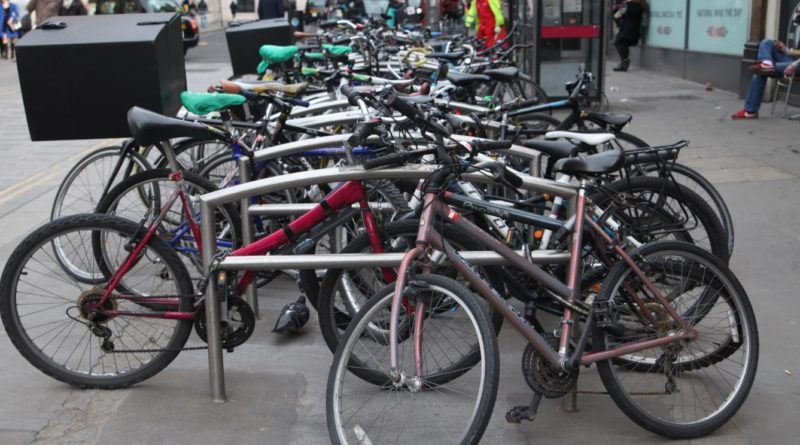ECF launches report comparing off-road bicycle & car parking regulations
The European Cyclists’ Federation (ECF) has today launched a report exploring the links between bicycle and car off-road parking and the impact upon transport choice.
The report, titled ‘Making Building Suitable for Sustainable Mobility’, reasons if there is easy and convenient parking available at the beginning and end of a person’s journey for a specific mode of transport, they are far more likely to choose that transport mode over another. Policymakers must, therefore, take bicycle parking into account when promoting active travel.
The research undertaken by ECF dug up a vast variety of approaches to parking, and looked at 31 European states. Each country was assessed along two metrics: its building code regarding off-street car parking and its building code regarding off-street bicycle parking. Countries were then ranked either excellent, good, sufficient or insufficient for both categories.
For countries whose bike parking regulations ranked as ‘insufficient’, such as the UK and Spain, ECF recommends they develop, as a minimum, guidelines for local authorities on bicycle parking in building regulations and urban planning policies before March 2020. These countries, as well as those who were classed as ‘sufficient’ like Ireland and Sweden, are also recommended to introduce a legally-binding framework at national or regional level which would require local authorities to adopt specific parking regulations.
For the likes of Italy and the Netherlands, who had ‘good’ bicycle parking regulations, ECF advises the countries to analyse whether local authorities properly transpose the national or regional framework law into local regulation, and if this is not the case, to introduce minimum requirements at the national/ regional level.
In terms of car parking regulations, the ECF recommends that for countries to be ranked ‘good’, they need to introduce a legally binding framework, either by setting maximum parking regulations at national or regional level, or by mandating local authorities to set maximum parking requirements. The ECF also advises that maximum parking regulations need to be supported with mobility management measures, such as providing bike and car-sharing services and good access to public transport.
Summarising the report, the ECF’s assessment shows that bicycle parking is somewhat better regulated at regional level than at national level. While one in five EU countries have minimum bicycle parking requirements at national level, this is the case in almost one in three regions.
However, just under 40% of countries and 14% of regions have neither legislation nor guidelines in place. As for car parking, 53% of all countries and 75% of all regions have minimum car parking requirements in place.
The report was launched today in Brussels at a breakfast event, taking place at the Hanse-Office between 9:30-12. During the launch, the key findings of the report were discussed alongside talks on metropolises, parking policies, best practice and integrating parking policies into SUMPs.
The talks were then followed by a panel discussion featuring: Michael Cramer, Member of European Parliament, Oliver Kozak, Board member of EU Cycling Group, Professor Dirk Lauwers at the University of Antwerp, and Philip Rubbens, Project Developer at Matexi.



